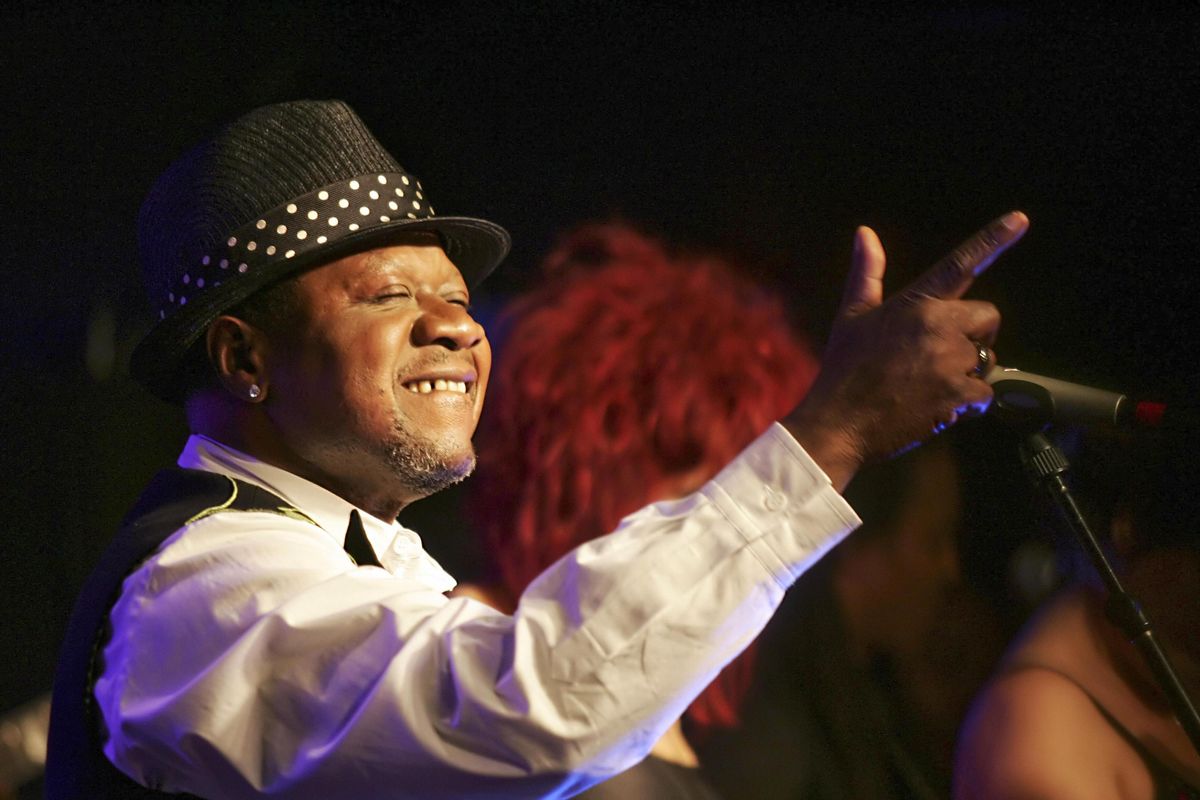Congolese Rumba Is Now A UNESCO-Protected Cultural Gem
Congolese rumba joins other living traditions, like Seychelles' Moutya dance and the Senegalese culinary art of Ceebu jën, in being added to Unesco's "intangible cultural heritage of humanity" list.

Congolese singer Papa Wemba performs during a concert in Paris on 15 February 2006.
For years, Congolese rumba has told stories of mourning and celebration, as a vibrant part of Congolese history. Artists like Papa Wemba, Franco Luambo Makiadi, and Fally Ipupa have taken the sounds of Congolese rumba global. Now UNESCO - the UN's specialized body aimed at promoting world peace and security through international cooperation in education, the arts, the sciences, and culture - is recognizing the musical genre and dance for its cultural value and power in social cohesion.
The Congolese rumba is just one of the latest additions to be made to the UNESCO list of intangible cultural heritage. In past years, Jamaican reggae and Singaporean street food have made the cut. The UNESCO committee meets annually to evaluate nominations proposed by countries and decides whether or not to inscribe those cultural practices and expressions asintangible heritage, and therefore in need of protection. Over a summit that has lasted for the past few days, UNESCO has evaluated applications for new additions.
"The rumba is used for celebration and mourning, in private, public and religious spaces," said the UNESCO citation. "It is an essential and representative part of the identity of Congolese people and their diaspora."
The application for Congolese rumba to be entered onto the list was made by both the Democratic Republic of Congo and its next-door neighbor the Republic of Congo (Congo-Brazzaville). Both countries occupy what was once the ancient kingdom of Kongo - where the supple dance originated, according to the two nations' joint application. The word "rumba" itself comes from the Kikongo word for navel, "Nkumba". They made the application on the basis that rumba helped energize the people of those countries to overthrow colonial rule by Belgium and France, respectively, in 1960.
UNESCO’s director general, Audrey Azoulay, summarized rumba’s significance, in a statement, saying: “In the 20th century, the Congolese rumba was a symbol for the fight for emancipation, dignity and political independence on the African continent. Therefore, the inscription of this music is not just the recognition of a cultural practice but a historic decision. It underlines the political nature of this music, which inspires so many artists all around the world today.”
Through its ongoing list, UNESCO aims to safeguard cultural practices and ensure that they’re handed down through generations.
Other additions to the list include the Moroccan equestrian performance known as Tbourida, which dates back to the sixteenth century and simulates a succession of military parades, reconstructed according to ancestral Arab-Berbers rituals, and the calabash sound-box instrument played in Southern Mali, the M’Bolon, which is taught through apprenticeships and by local associations. But the practice is being threatened by urbanization, the introduction of religions that prohibit traditional initiatory rites, and decreasing interest among the younger generation, hence its place on the list.
A dish made with fish steak, broken rice, dried fish, mollusk and seasonal vegetables that originated in the fishing communities on the island of Saint-Louis in Senegal has also made the list. Ceebu jën and the preparation that goes into making the meal is viewed as an affirmation of Senegalese identity, and the recipe and techniques are traditionally passed down from mother to daughter.
The art of Moutya dance, which was brought to Seychelles by enslaved Africans who arrived with the French settlers in the early eighteenth century, has also been decreed intangible heritage. The dance used to be practiced at night in the forest, at a distance from the plantation house where masters lived and became a psychological comfort against hardship and poverty, as well as a means of resisting servitude and social injustice.
- Remembering Papa Wemba: Style Icon And The King Of Congolese ... ›
- Baloji's Love Letter To The Congo Is The Most Stunning Music Video ... ›
- DRC Music Drops 'Kinshasa One Two' on Vinyl + CD - OkayAfrica ›
- 10 Musicians That Prove the Congolese Diaspora Is Killing It Right ... ›
- Watch Fally Ipupa Deliver a Riveting COLORS Performance - OkayAfrica ›
- Eight African Cultural Practices From UNESCO’s 2024 Intangible Heritage List | OkayAfrica ›
- Kahindo Mateene Building Ethical Fashion Brand | OkayAfrica ›

